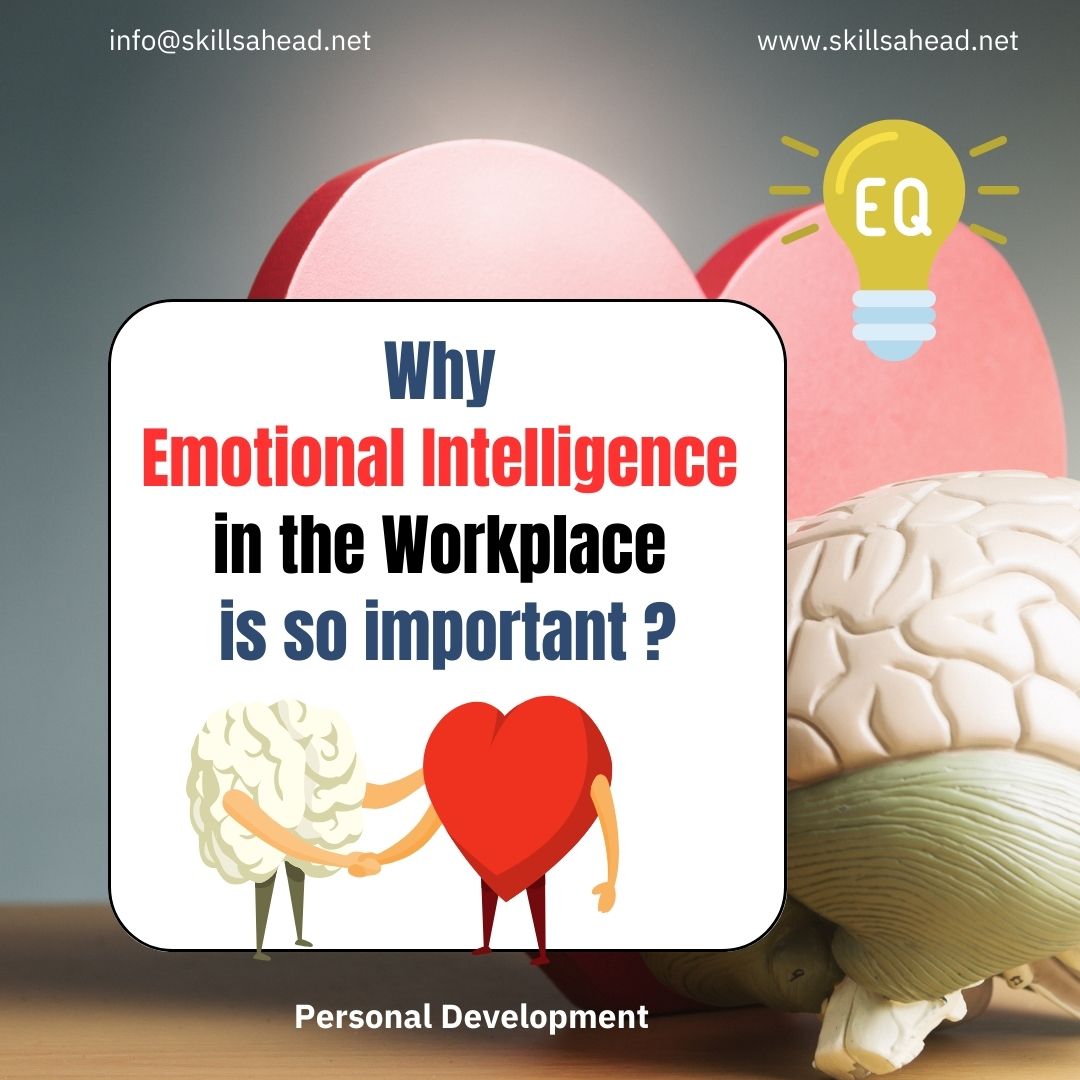Why Emotional Intelligence is so important ?
Why Emotional Intelligence in the Workplace is important?
Emotional Intelligence (EI) in the workplace refers to the ability to recognize, understand, and manage one’s own emotions and effectively navigate interpersonal relationships. It plays a crucial role in personal and professional success. Here’s why EI is important in the workplace:
- Enhanced Interpersonal Relationships: EI helps individuals build strong relationships with colleagues, superiors, clients, and stakeholders. It enables effective communication, empathy, and understanding, fostering a positive work environment. Strong interpersonal relationships improve collaboration, teamwork, and overall productivity.
- Effective Leadership: Leaders with high EI can inspire and motivate their teams, adapt to changing circumstances, and make sound decisions. They have the ability to understand and manage emotions, handle conflicts, and effectively communicate expectations. EI is essential for building trust, influencing others, and creating a supportive work culture.
- Conflict Resolution: Workplace conflicts are inevitable, and EI equips individuals with the skills to navigate and resolve them effectively. EI helps individuals manage emotions during conflicts, listen actively, understand different perspectives, and find win-win solutions. This contributes to a harmonious work environment and prevents conflicts from escalating.
- Stress Management: The workplace can be stressful, and individuals with high EI are better equipped to manage stress and maintain their well-being. They have the ability to recognize and regulate their own emotions, adapt to challenging situations, and practice self-care. This leads to increased resilience, reduced burnout, and better overall mental health.
- Improved Decision-Making: EI enhances decision-making by incorporating emotional awareness and empathy. It helps individuals consider the impact of decisions on others, understand diverse viewpoints, and make more informed and balanced choices. EI also aids in managing emotions that can influence judgment and impede rational decision-making.
- Customer Service Excellence: Employees with high EI are more likely to provide exceptional customer service. They can understand and empathize with customer needs, manage difficult situations with composure, and effectively address concerns. EI enables employees to build positive relationships with customers, leading to increased satisfaction and loyalty.
To develop EI in the workplace, various training approaches can be employed, including:
- Emotional Intelligence Assessment: Conduct assessments to measure individuals’ EI levels and identify areas for improvement. These assessments can provide valuable insights into strengths and weaknesses, serving as a starting point for targeted training.
- Self-Awareness and Self-Management Training: Help individuals develop self-awareness by recognizing their emotions, triggers, and patterns of behavior. Provide techniques for managing stress, regulating emotions, and practicing self-care. Training in mindfulness and relaxation techniques can also be beneficial.
- Empathy and Communication Skills Training: Enhance individuals’ ability to understand and empathize with others’ emotions. Teach active listening skills, nonverbal communication, and techniques for building rapport. Foster an inclusive and empathetic communication culture within the organization.
- Conflict Resolution and Relationship Building Training: Equip employees with skills for resolving conflicts constructively, such as effective communication, negotiation, and problem-solving techniques. Provide training on assertiveness, managing difficult conversations, and promoting collaboration.
- Leadership Development Programs: Offer leadership development programs that focus on EI skills, such as self-awareness, empathy, influencing others, and creating a positive work environment. Provide coaching and mentoring to support leaders in their EI growth.
- Team Building Exercises: Conduct team-building activities that promote emotional intelligence, trust, and collaboration. These exercises can help individuals understand and appreciate each other’s emotions, perspectives, and strengths.
- Continuous Learning and Reinforcement: Emotional intelligence training should be an ongoing process. Encourage individuals to apply learned skills in their daily interactions and provide opportunities for continuous learning and reinforcement through workshops, webinars, and follow-up sessions.
By investing in EI training, organizations can cultivate a more emotionally intelligent workforce, leading to improved communication, stronger relationships, effective leadership, enhanced decision-making, and positive work culture.



